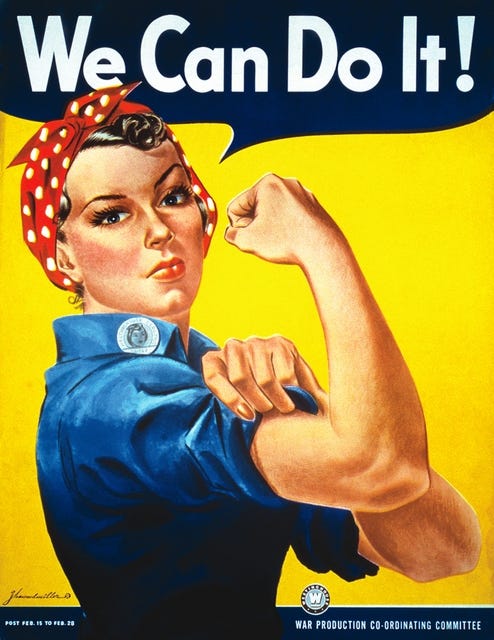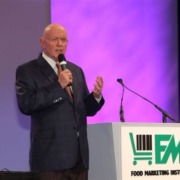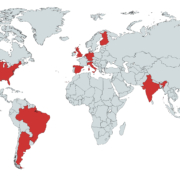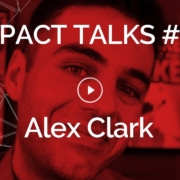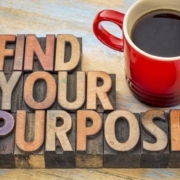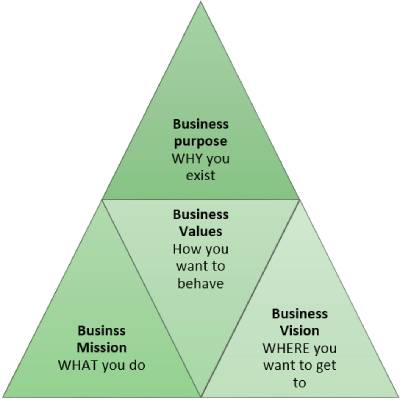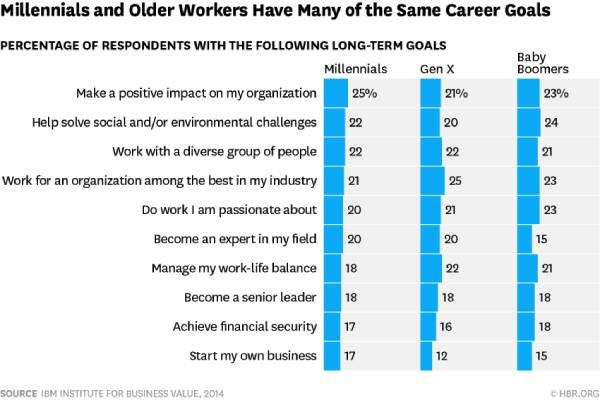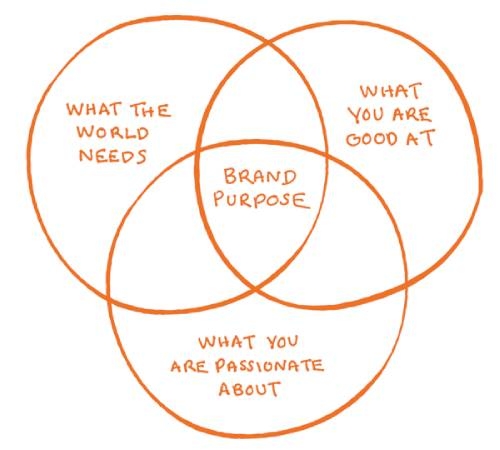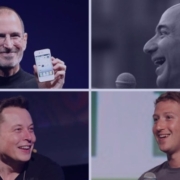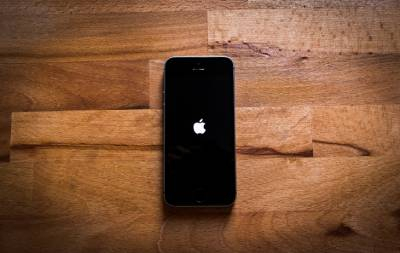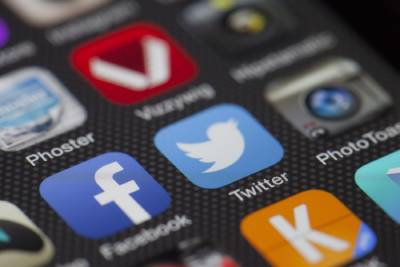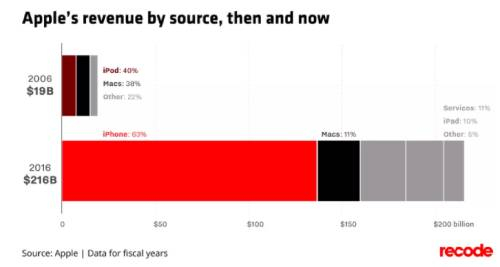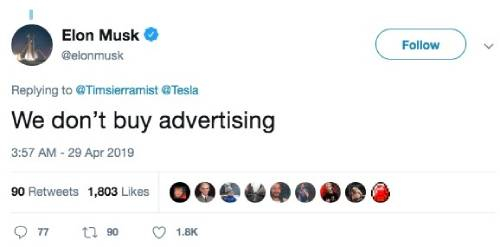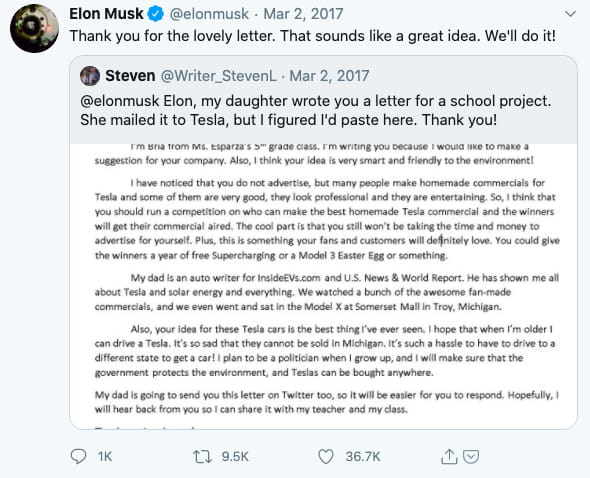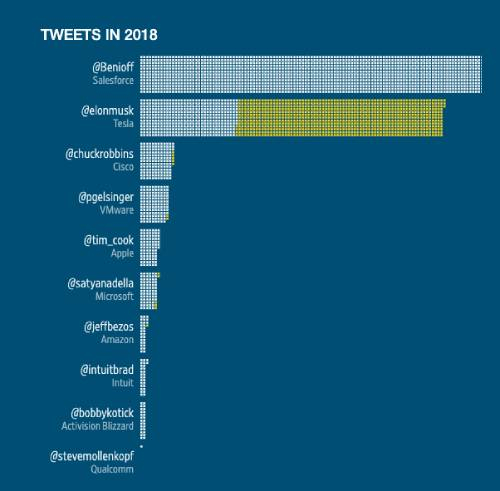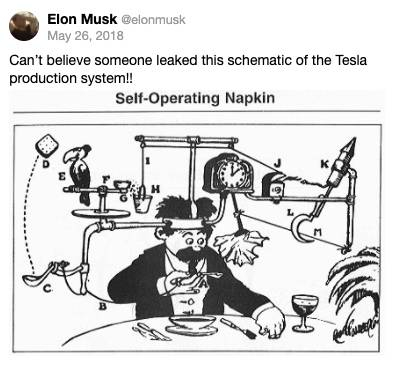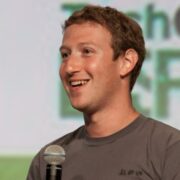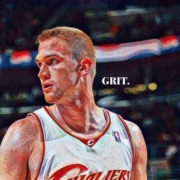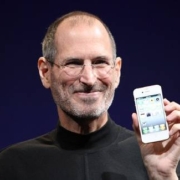Transcript:
Welcome to the Impact Talks Podcast. Today we have Lance Allred with us. Obviously, I always want to ask you who you are, what do you do and what your current job is. Just tell the listeners everything. Oh, well. That’s a loaded question, so I retired from basketball about five years ago, so I’m now in my second career, I played professional basketball for 10 years. I was the first legally deaf player in the NBA. I couldn’t play basketball with my hearing aids in.
And so I had to learn to play in a very different way, keeping my head on a swivel, approaching it from a very visual aspect, intuiting people’s body language and responding in kind and playing more intuitive, more heart centered and staying in my body.
Because when we’re always analyzing in our head, you’re step behind on the basketball court when you’re aiming your shots is when you’re missing them. And so when you trust in your intuition and you’re just out there playing basketball, that’s how I learned to play it. And it allowed me to play professionally for ten years all around the world and in the NBA with the Cleveland Cavaliers and the Indiana Pacers. And I retired from basketball about five years ago and I was going through a divorce, didn’t want to be away from my son.
And he was only 15 months old at the time. So I had to figure out something to do to.
Adjust and adapt to be with my son, and since my days with the Cleveland Cavaliers, I had so many schools and people reaching out for me to come speak to them and coach them. And I was like, so I guess there’s this rumor that people can get paid to speak. And so I transitioned and little by little through the hair, my by the skin of my teeth, really, the expression goes just hanging in there. I found a way to make it work.
And so with my new book came out two weeks ago. Right. With the whole meltdown of the coronavirus and everything, my book tour was just stopped. And we’re all having to adapt and to adjust. And that’s the whole message of the book anyway. And so it’s a good opportunity for me to walk my talk. As far as hey, as a basketball player, if the ref starts calling the game differently in the fourth quarter than what they were in the second in the second quarter, the first half, I can throw a fit and POW and cry about it, but I’m not going to win the game.
So it’s all about adjusting and adapting. And that’s what my skill has been. And being able to take my basketball and sports experiences to connect with all ranges of people in various eclectic audiences, people who are big into self development, where people who don’t care about that at all. I’m able to find a way to connect with people all across the board when I go speak. And so I speak, mostly private, corporate or company events. I’m not a I’m not a conference speaker where there’s a bunch of lineups of other speakers coming in and they kind of present a Course or a packet.
But I’m more of an in-house content speaker and trainer. And so I’ve been doing that for about five years now and I love it. It’s very fulfilling and I don’t miss basketball because of it.
So how is it structured? Do you have a team around you or do you have a P.A. or you at an agency right now?
So I work with. Seven legitimate speaker bureaus that get me engagement’s, and I love them and they work hard for me, but for the most part, most of my speaking events come through word of mouth. And referrals from past clients that I’ve worked with and, yeah, online social media marketing, it helps is gotten me lots of engagements too. Do you use LinkedIn or Instagram?
Yeah, LinkedIn, Instagram, Twitter. LinkedIn has gotten me the most speaking engagements, really. And the number the number one way to do LinkedIn, I tell people, don’t pitch too hard.
Just simply adding people into your network and if you have a solid resume and if you’ve actually achieved something in your life because as you know, it’s such a saturated market, the whole speaker influencer thing that anyone like YouTube and I remember in basketball, my basketball days, anyone can edit their basketball highlight film to make him look like an all star.
But when push comes to shove, when it’s time to produce, can you actually show up and help the team win the game? That’s a very different story. And so influencing is not that hard to do as far as padding your stats, getting fake likes, fake followers, getting a million followers on Instagram. I get offered that almost every day by these boutique social media marketing firms. And I’m like, no, I’m going to trust in my message and my content and my authenticity to carry me through.
But it has been quite sobering. In researching for my book, I was kind of tackling this topic in my book, The New Alpha Male How to Win the Game. The rules are changing. I decided to play along with one of the marketing boutiques and they invited me into what’s called an engagement pod. An engagement pod is where influencers get together and they automatically like and comment on each other’s posts.
OK, so it’s like it’s a life event or is not a live event is actually there’s a bot in the middle of it, a robot.
OK, so any time anyone makes an update, they automatically have everybody else in their group making comments like that to help their algorithm rankings and Instagram or LinkedIn.
And so a lot of people are cheating the system. And I don’t want to throw people under the bus or be a gossiper. But I will tell you, it was quite surprising. The names that were in that engagement pod, some pretty big names that you would think wouldn’t need that kind of aboost.
Why do you think that happens though?
So, yeah, they were worried because I think a lot of people are getting stuck in the whole keeping up with the Joneses. Thing is that especially in America, where you’re trying to keep up with your competition to make you look like you’re more important than you really are. But once you start taking that drug, you can’t stop it. OK, I got 100000 followers now. OK, I got to get out of these by all these likes and by all these comments to keep up with that all.
But what’s my competition doing? Oh my gosh. They drew a million followers in just six months. How is that possible? Because they bought them.
And I think we’ll all I think we would all be sobered if we saw all of our favorite influencers and celebrities. How much are their followers were actually real followers.
That is part of the whole marketing gimmick. Now, is is not just no longer having your your face on a magazine at a grocery store. To say you are important in your celebrity is to say, oh, I have 20 million followers or I have a million followers. So much of it is a racket especially. If it is someone who hasn’t really accomplished anything, who hasn’t really done something remarkable with your life, but then suddenly they’re just an influencer and they have all of these followers.
How does that how does that affect you in your career? Because obviously you have accomplished something. Do you find that you get less speaking engagements or do you find that because you’re doing word of mouth and that word of mouth?
That’s a great question, because, yes, some event planners haven’t figured this truth out yet. Some event planners still think that, oh, he has 100000 followers on Twitter. That must mean he’s really important. But then they don’t take the time to actually look at the engagement, are the comments authentic? Are they real or are they just generic emojis or comments that have nothing to do with the content? A lot of event planners don’t go that far, but more and more they’re figuring it out.
They’re getting wiser to it. With all that being said, going back to LinkedIn and. When I add people or reach out and I research event planners or HR people and I add them just my resume, when they say, OK, they read first legally deaf player in NBA history, an inspirational speaker, four million of TedX they’re going to see.
Oh, wow, that’s just a free marketing right there. And I don’t follow up with some email or pitch. I they now just know that I’m their just because they read my bio when they accepted my friend request and then now that they’re connected with me, if I just post good content, hopefully they see it.
But LinkedIn and Facebook and Instagram, it’s it’s tough because you might have people follow you, but they’re not all going to they’re not all going to see your content because of the algorithms that they have. And so you have to, like, pay to get even your own followers to see your content. So it’s frustrating. It’s difficult. And so I think what you’re doing is brilliant, actually, by creating your own platform, having people signing. And so therefore you’re not having to pay a premium just to reach your own followers.
So that’s the genius of what you’re doing, recognizing that’s where the trend was going and not having to pay to stay connected with people that have chosen to stay connected with you. And so hats off to you with that. It’s a very valuable thing that you’ve done and created for yourself. And so all that being said. Right now with social media. And influencer marketing, just staying authentic and staying real with people is the most important thing, though, do you think?
Don’t you think that I mean, that’s been my experience, at least in the last couple of years as we were growing our event, that there’s a trend now going towards online and offline because a lot of people are looking at all these influencers and exactly what you’re saying. They’re realizing that pretty much you can edit your highlight reel and it’ll look like you’re awesome, but not everybody can actually do it consistently and and show all these. How do you say actual like real life things?
So and what I mean with that is look at Amazon. Amazon is an online store, but yet they are starting to go in the physical world, something I see with my clients a lot as well, partially why we did the event as well as a little bit to show. Look, you can highlight you can do a lot of ads, paid ads and make yourself look great. But at the same time, what if you actually had a thing where you would bring people together like an event and you know, or like a virtual community?
Because when we started building course platforms for clients, we noticed that exactly what she said people need to do, paid ads just to get in touch with their fans. So we we started asking our clients, OK, look, you can go that way. You can have all the followers and you can do all of that and not really our expertise. Or you can actually build a physical event or a virtual space where you can really get in touch with all of them at the same time with no ads necessary.
A little bit. Right. Like a WhatsApp where all of them have personal interaction with you and your team. And the thing that a lot of people don’t understand there is also that you really need a team to execute on that. I mean, here you have one super cool, but it’s almost impossible for you to interact with a thousand people at the same time. Yeah, you can. But if you have direct interaction with all of these people that follow you, then, you know, and you have a team around you that can answer the most basic questions that you get asked all the time.
And then you are there for the valuable questions that gets more valuable. So to turn that back around to you, my question is, because obviously you are in that part of your career where you’ve experienced, you know, the time before the craziness of social media with a successful career, having fans and stuff like that. And now you’re actually going into the craziness of this whole thing as a speaker. And so my question is, don’t you think the trend is going now towards using both like the physical and online?
Yes, you are. To your point, it’s 100 percent accurate that just two months ago, I mean, I’ve been shooting online courses in my head for the last year, you know? I know. And I got to get a spun up. I get spun up. But just a month ago in February, I said, you know what kind of start doing it.
So I started doing some production of online courses and then bam coronavirus hits. So to your point is like, yeah, intuitively it is important to be able to offer courses for people to stay connected with you because again, a keynote.
I love keynotes. I love being able to go into an audience and people are shocked because I’m not up there giving them cliches. I’m not giving them just I’m not repeating Tony Robbins. I’m not repeating Wayne Dyer as much as I love them. I’m not using other people’s quotes in my PowerPoint. I’m not having bullet points.
Why would someone pay me to read out loud on Akino?
It blows my mind when people do that, but my ability to go into any audience and the basketball player in me comes out when I’m able to adlib or I’m able to respond and feed off the crowd and play like I did as a basketball player. That’s something that people respond very strongly to because they are tired again of the perfectly polished presentations.
What do you speak about usually or how does a typical presentation go?
Well, a typical presentation goes is that I have my principles of perseverance. I have seven of them that I use in the book. But depending on the client, I will use four or five and I’ll customize it, but I have just the word, I have videos, pictures and one word integrity or discomfort or compassion and just the word. And then I will go into the crowd and I’ll ask someone, what does this word mean to you?
Did you learn how to build the PowerPoint somehow?
Or I have a friend named Marcie in the former NBA all star. He does speak and as well. I went and saw him one time and I saw how he used a lot of black screen, meaning when he was done using the word, he clicked the clicker and the screen behind him went blank. So therefore everyone could go back to him. They could focus on him, so I love using black screen, I’ll use the word and then I’ll get the black screen so people aren’t just there looking at a graphic.
They’re actually focused on me and I can look them in the eye and we can actually feed off of each other. That was a very valuable thing that I learned. I loved it. And so taking that, always asking to. What will entertain me, yeah, because I have to make sure I’m putting myself in the audience’s shoes. Because, again, just because you’ve seen Zig Ziglar or someone do the perfect, polished, smooth presentation, maybe that was cool in the 1980s at the beginning of this keynote speaking trend.
But people’s attention span is shorter because of social media. People are just clicking and scrolling. They need to be captivated. And so if you’re just there clicking, it takes him back to the default mode of when they were in high school and their teachers are talking down to them, just going through recited short term memory people are going to check out. So taking the basketball background that I have is I actually I was an entertainer as an athlete and I had to learn to feed off the crowd and give them something that will captivate them and hold their attention by having a crazy story.
Growing up in a polygamous cold in rural Montana, escaping when I was 13, started playing basketball when I was 14. At the end of the hearing loss, I kind of played my hearing aids and talking about that as a disability, then talking about obsessive compulsive disorder, mental illness, post-traumatic stress disorder, the things that I’ve gone through being authentic and brave enough to talk about the real human journey of this life. And not giving people boring cliches and platitudes, but actually meeting people at the human element of the heart.
People remember what they feel, not what they hear, right, and that’s where I’m lucky that I don’t hear very well, but I’ve learned to understand that’s OK being in speech therapy until I was 16, having to learn how to communicate, do I communicate to have anyone listen to how smart I am? No. Being the smartest guy in the room doesn’t really get you anywhere. Are you the best listener and can you feel where people are at? You know, meet them there, sort of answer your question?
Yes. The need for live, public engagement in person will always be a necessity. It’s been that way since the dawn of time. People need to have their fireside ceremony like the Greeks did. The great bonfire, where they were all great and tell stories is part of human connection. That need will always be there. And then going to the point of online is I have a message that is a big message and I can’t get to everybody.
I can only be in one place at one time. So the need to be able to expand on the keynote, c’os again, I can only speak to 45 minutes to an hour, but with the online courses I can go for hours. I can expand and go deeper and provide more educational content because a keynote is inspiration, but it’s also entertainment.
Yeah, an online course is more education. Right. And then hopefully entertainment and inspiration. So that’s the need of the online course, which is further systemic development, a culture of a company, but someone’s own culture within their head. And so your point is they’re both just as valuable now, correct?
Yeah, we started in January this year focusing on the educational aspect of our company, focusing with recognizable brands and some celebrities to really hone in on creating a journey of let’s do an online course, but then also see how we manage the community part of it. How can we get a fireside chat together? Yeah, using kind of also ourselves as the example of Startup Funding Event how we went from online content to fully physical, nothing online, just events.
And then at the same time, once we figured out the systems for that, brought that back to online. And now, you know, we were our biggest event I think was there like around a thousand people. But then when we started doing the podcasts, we started launching those. And then with the listeners, that hundred xed so thinking exponentially, just exactly what you said. You have to look at, you know, the fireside chats just like the Greeks, which I love that analogy.
But at the same time also I don’t want to get too marketing about it because I just wanted to hear your perspective on it because you’re actually in it, but you’re in it and you’re right on time.
You’re right.
I’m I’m I’m more interested in actually the beginning. Your mindset. Um, one of the things obviously, as we grow, my company grows, my team grows. So many obstacles pop up. So many people want to be a part of it. And so for me, the mindsets of the people that come into podcasts and more specifically with you and everything that I’ve researched about you is for me, more interesting. So my question to you is, how did your journey kind of start?
And I guess my question is more specifically, when did your personal development journey start? When did you become aware of what you wanted to do, where you wanted to be, or was it just day to day?
Great question. When did my personal development journey start? It has started ever since, I can remember, and every day being raised in a polygamous cult in rural Montana in the wilderness, there were no amenities to learn, sign language and stay in my comfort zone of having people meet me where I was at. So every day when my mom forced me to wear my hearing aids and she forced me to go to speech therapy, she would drive me out of the commune to a tiny town where there was a speech therapist pushing me out of my comfort zone.
What kind of commune was it? So it was a ultrareligious Mormon or Latter-Day Saints branch. It was a break off of the Mormon faith where they still practice polygamy. Multiple wives, mainstream Mormonism in Utah does not do polygamy. They outlawed that a long time ago. But my grandfather broke away and continued his own little sect. And so it was a very religious extreme fanaticism. And so it was ironic that I’m growing up in this tiny bubble of a cold, but at the same time I’m being forced outside of my comfort zone every day as a kid learning how to read people’s lips.
I had to learn how to read English first and then watch people read it so I could read their lips and take the context of the conversation of what we’re talking about, piecing together the vowel shifts, IOU, and then just over the years, learning out OK, learning how did people communicate? What are their patterns? And so to answer your point, your question, I’m sorry, the cell development journey has been ingrained in me because I live between worlds.
I’m not fully of the hearing world. I’m not fully of the deaf world. I’m between two worlds. I’m being an outsider. I have had to watch people all my life. What do you do here?
Because I read somewhere 80 percent. 80 percent. So what how does that can you describe it? Do you hear something, or? the best way to describe it.
I hear percussions. I feel, even though I can’t hear what’s being said, my skull, my brain, I still feel sound waves like a bass or a drum. So I wake at the slightest murmurs. I can feel all those but the sound. If it’s a higher pitch, I don’t hear it at all. But lower pitches like a male voice. I can hear something if I’m in close proximity, like if I’m in the same room with you and I don’t have my hearing aids.
But you have a male voice and you say something, I’ll know that you’re speaking and then I can turn and look at you and say, Can you repeat that? And then I’ll read your lips. So I’m a lip reader. So that’s why I do the face times. I’m a lip reader when I communicate with people, I still rely mostly on lip reading and hearing aid.
Help you a lot then or I say again, sorry, the hearing aid, does it help a lot oh the hearing aid?
Yeah, the digital hearing aid is amazing now that we have digital because I remember growing up we had to have analog back in the day, but digital really discern foreground and background noise. So I could actually figure out, OK, that helps me hear a little bit better. So hearing aids definitely do help, but it puts me up. Hearing aids putting up to about 60 to 70 percent of what normal people hear. But I still usually have to be reading their lips.
And so with it all, with them and with them, it sounds like the best way I can describe it from what I’ve watched and seen, it sound like, you know, what it sounds like when you’re underwater and everything is really muffled.
Yeah. That you can feel noises around you sometimes, but like, everything is just so muffled and you can’t really even make out what they’re saying.
So you to that’s you really then if that’s how you heard, then you also really wanted to do to lipreading I’m assuming.
Yeah. I wanted to be able to connect and understand. And so learning how to connect with people, being an outsider, basically being a cat, trying to make friends with dogs, learning how to connect with them.
Why was that so important? Like why not like play Xbox or PlayStation all day?
Well, what do we here to do as humans? To me, I’m here to connect. We’re here to have the human experience, which is having intimacy, which is being able to feel what makes us human is not our ability to think and analyze and be smarter than all the other animals in the world, which makes us human is our ability to feel multiple emotions at once. Meaning? I can hold sadness for a failed marriage and at the same time I can hold gratitude for all the things I learned about myself through that process, I can hold both at the same time.
That’s what makes me human. And so, yes, we humans have to be able to distract ourselves and turn off the brain and play an Xbox, watch a movie, check out for a while. It’s part of just self maintenance. But what we’re really here to do is to have the human experience and be able to report back to the universe, to the mainframe, whatever you choose to believe in information, data of what the human condition is.
Yeah. And so that’s what we’re here to do. We’re here to live and be able to report back, because I think we’re all just Antanas, we’re all just extensions of the universe that we’re here reporting the universe, helping the universe learn more about its self. And so that’s how I see living in this world, that we’re here to experience the human condition and to have real intimacy. Intimacy is not what the movies tell us, that we have to play a role.
Intimacy is being able to have a real conversation and say, OK, wow, I have a blind spot coming up. When you said this, you brought up a deep wound or a trigger in my childhood, and I need it not to happen again.
And also, I understand, is bringing up a great opportunity for me to go inward and do some healing. That’s intimacy. Being able to have a real conversation with a partner or friend in your life instead of projecting onto your partner. Oh, you did this. You’re never going to do that again. And you’re supposed to read my mind anyway. Yeah, a lot of people think the soulmate thing is just people being able to magically read your mind and you’re just supposed to get me away.
You’re not reading my mind. What I’m hearing when people say that and they talk about a soulmate as people saying, I don’t want to have to communicate. Yeah.
And so it’s funny that me, the deaf guy, I get paid a lot of money to help teams, corporations communicate better.
Because I learned how essential it is and I learned how to do it, to get past the whole one dimensional surface level communication stuff and find a way to really connect with people. So to answer your question, why do we do it? We’re here to we’re here to feel it. Right here to feel love. We’re here to feel intimacy and have real connection with people. And I’m very fortunate that I get to talk about these kind of things with the basketball metaphor as a big Trojan horse coming in first to get people to suddenly say, oh, wow, he he he’s been through a lot.
He’s paid a price to be on a stage talking to us. And now he’s going to pivot and not just tell sports stories, but use those experiences to help us all learn to communicate better. So that’s my that’s my big passion. I love it.
I like what you said about the whole soul mate, that what you hear is people actually not wanting to communicate. But it’s kind of what you said.
If you are like this soul mate, you have to work to constantly communicate, always constant communication, constant humility of knowing that you were always going to have blind spots. Yeah. That you’re always going to be activated, that you’re going to have archetypes. So the Greeks to talk about the archetypes, call young Joseph Campbell, the archetypes. You all have archetypes in our psyche. And when you fall in love with someone, you fall in love with two of their main archetypes.
But then when you get married or move in with them, 10 other people move in with them. Like, who is this person? Yeah. And who am I? I’m bringing in stuff, too. We’re all bringing in our own baggage to every relationship. But do you have the humility to know that you’re blind spots are going to be exposed until the day you die? Yeah. And do you have the humility to know that you don’t have all the answers?
And are you do you have a real soul mate who is meeting you at that level, who has the accountability to own their stories of what they bring into a relationship? And most people, when they want relationships, it’s like, oh, no, I have a sad story. You’re responsible for healing that story.
And they think that’s love. It’s not as co-dependency, real, authentic intimacy as being able to have that vulnerability to be on the same wavelength with somebody to say, I got a lot of bullshit I’m bringing into this relationship and I’m going to own it. And I need you to be patient with me. And when I’m operating with a blind spot and I’m not seeing it, I need you to call me out. Yeah, smart. That’s that’s real powerful communication, whether it’s a romantic relationship or a deep friendship, family or even professional.
I’m working now with a lot of companies that want to have more authentic communication. And I say, OK, how authentic do you really want to get? Yeah, because people say they want authenticity. Yeah, but a lot of people, as you know, love to say the big words, the key word is at the moment, but what does it actually mean? And so since I was a kid, long winded answer, I know I’m coming back since I was a kid, being on the outside, looking in, watching people and their body language, watching them change their body language, depending on who they’re talking to, which is not integrity.
Integrity is the same person. Are you the same person in every room that you walk into? Yeah. Every person you’re talking to, whether they have money, whether they don’t have money. And can they help your career or not? Do you still talk to everyone? Exactly the same. That’s integrity. But watching so many people in leadership positions in my religious upbringing, not being integrity, say one thing on the stage, but then off the stage at home, be a very different person.
And I got a very early education on that with my ability to watch body language. And so living in a quiet world, when I take my hearing aids out at night, everything goes quiet. Laying there in bed as a kid, I would just replay the entire day in a very quiet world asking.
Why did I feel the need to say that today, why did I behave that way? So how young were you when you were having these conversations? Five, six. Wow, that’s crazy. Self reflective for such an age.
It was I was a very sober kid, too. I dealt with a lot of self-esteem issues, but that the skill of introspection and this a skill because if everyone could do it, they would. Yeah, but they don’t. I think I’ve learned the more and more you go into self development, work of accountability, introspection, reflection, the more and more you realize that not many people have the skill. Of insight and self reflection, and so it’s been a lonely world, but it’s also been rewarding again for platforms like this that you’re building, finding the small percentage of people, the 10 percent in the world who are into self development, who are asking the deeper questions of why are we actually here?
What are we trying to accomplish? I believe I don’t believe that death is a finite thing, I believe in eternal progression, I believe in constant growth and sometimes growth is contraction. That’s where the universe is expansion and contraction. And we had to have it. And I believe in that. And so and I know the people in your following that are listening to this now, a lot of them, if not all of them, are big into growth because otherwise if we’re not growing.
Then what the hell are we even doing? Why are we even here? And so those questions are questions I’ve been asking since I was a kid, and is it like something your parents gave you or because you were in the in the religion?
No, the religion did not have a lot to do with it, because the religion, the religion, my religion is such a cult mentality where they operate in absolute truths. Really, we’re God’s chosen people. You know, everyone else is a gentile or not going to heaven. That creates a comfort zone. The absolute truth creates a comfort zone that says I’m safe. I don’t have to do any real hard questions in my head. I don’t have to ask too many questions or wonder where is this all going?
Because I have a prophet telling me what’s going to happen and everything is going to be OK. And so, no, it didn’t come from religion. But my mother my mother was not raised in this cult. Her mom joined when she was 15. But my mom, her father, my maternal grandfather was a man who raised her on the truth or the expression that thoughts are things. So my mom always remember that, and so my mom was big on accountability.
Accountability is the first principle of perseverance that’s shared with everybody. Accountability is many things, but basically is the buck stops with me. I am a star. I am responsible for my not only my behaviors and my actions, but I’m responsible for my thoughts. I’m responsible for the stories that I tell them I had an event is an actual thing that happened, but your story is how you choose to tell it. Excuse me. Get excited here and I’m rattling my desk.
Your story is how you choose to tell the event. And so my mom was always someone that hammered home accountability. Not only do I say what I do, what I say I’m going to do, do I follow through and do I own up my mistakes? Because I think you would agree accountability is inspiring when you have a leader. Who owns the fact they made a mistake? And it says, guys, I screwed up. That’s inspiring, and yet we were raised in a world with 24/7 news, social media, where people live in fear that if they make a mistake, they’re done for.
So I always have to be perfect. And therefore, you have a lot of people in leadership positions that are so afraid to apologize. Let me ask you, in my 10 years of pro basketball, how many times you think I had a coach ever truly apologize to the team?
Uh, I you don’t really deep into all the NBA. I’m very passionate about NBA. For a while time, I only heard of one coach who was famous for that. And I think that was the guy for the San Antonio Spurs. Popovich. Yeah, I heard he was one of the like maybe only a few ones who actually like the stories I read about him. So interesting. I don’t know if there were other coaches famous.
Yeah, you. So you said one in my own person. I’ve never played for Popovich. I have one coach who truly apologized to the team in my ten years and I’ve had coaches sit me down one on one and own up to it. But in front of the entire team, one coach said, Guys, I screwed up. Really, I’m going to make it up to you. That was so inspiring to me, I would do anything for that man was he was he was my coach, my last coach in Puerto Rico, my last job.
I was playing in Puerto Rico. Great league fun. A tiny little dude who had every right to have a Napoleon complex and be threatened by my size.
But yes. How tall are you?
I’m six 11, six foot 11 or 211 centimeters.
211? Yeah, 211 centimeters. Oh, wow. So, yeah, I’m a big dude.
I had no idea that six eleven was 210.
Yeah. It’s somewhere around there. It’s 210 or 211. And this coach, he apologized and it was so inspiring. I would run through a brick wall for that man.
But like nobody apologize. I mean, not apologies. Nobody really owned up.
And yeah, because these coaches live in fear. Why 90 percent of the world operates in fear that the world is not a safe place, that they lose their job, that people were undermined me and trying to take my job from me. 10 percent of the world operates in trust. That says if I keep showing up authentically every day with humility, with accountability, owning my shortcomings. Walk in my authentic path, I will get to where I need to go, if I’m always and integrity, always in accountability, that even if I have a bad experience.
A person who is big in self development if we have a setback or heartbreak. Instead of us saying, oh, why does this always happen to me, we say what a great opportunity for me to learn. What can I learn in this experience and choosing to step out of the victim archetype that so much of the world operates, and especially on social media, people love to play the victim and have it be validated. But the opposite of the victim archetype is the teacher.
The victim says, why does this happen to me? The teacher says, What can I learn about myself in this experience and how can I share with other people to empower them?
And that’s why teacher. That’s teacher. Victim says, Oh, I am the center of this experience and everyone needs to know about it so I can take empathy, compassion from them. The teacher says, how do I get empathy and compassion in an educational context and give it. And so, so few people, so few coaches operate in that kind of trust because they live in fear, because it’s all about them and they don’t know how to be teachers.
They only know how to be a boss.
But isn’t it that if you go into higher, you go the less? Well, I’ve noticed when I work with some corporates, um, that so when you go to C level, which is like the usual managers who are 10, 20 years in the company, they operate exactly how you describe it. Like the moment you start going to the more executive people they are. So chill, super nice people. And so I kind of assume that the higher you would go, the more like the more chill, I guess more flexible, the more, you know, leadership esque.
Yeah. People would be.
Your point is valid. I’ll answer in a couple of parts. It’s easy to be chill. When you control the whole thing. When you get the final say, but. I will say that more and more we have more people ascending to leadership positions because they have the humility to always be a student of life. The mid-level management or the sea level, as you said, yeah, most coaches in professional sports are sea level because they have the answer to the general managers that have to answer to the owners.
So they’re stuck in mid-level management.
Really Wouldn’t you assume that a coach would be saying to the owner, hey, let me do this thing because I’ll get you there?
Yes, you think they would, but only a few coaches have that kind of leverage. Popovich is one of them because he’s been coaching for so long and he’s been successful.
But basketball has become so corporate now with all the sponsors and advertising that there are so many different bosses that people have to answer to, said they are really like two or three levels away from the owner almost.
Mm hmm. And so they’re stuck in that sea level that you’re talking about where people are trying to control things and they had the boss cap on rather than being a leader or, again, always a student.
And so it’s fascinating when people fail to recognize that if you are someone that can never apologize, people will want to see you fall.
But if you’re someone that has the humility to say, I don’t know anything, yeah, I’m learning with you. And I’m in a position where someone decided that I should be the leader of this group, I don’t feel like I’m the right fit, but I don’t know anything. And I’m going to learn and grow with you. This same coach, this Puerto Rican guy I was talking about, Juan Cardona, he was also the coach that could pull me over to the side of a game and say, Lance, what are you seeing out there in the middle as the center, as the big man that I can’t see from my perspective.
And I would tell him now whether or not he took my advice and applied, it did not matter. Just the fact that he was willing to listen to what I had to say, which then allowed me to know that he saw me as a human being. He saw my perspective and my human experience and took it in consideration. Once he heard it, I was in complete trust that he was going to make the best informed decision with all the information he had for the whole group.
Did you ever disagree? Oh, yeah, we disagreed all the time.
But because he still was willing to hear what I had to say. I’m like, OK, coach, this is what I say, you’re going to go a different way. I can I can wash my hands and I can choose to trust I’m going to follow you because you’re the one that has the ultimate say. At the end of the day, the coaches who could not hear feedback that rule with the iron fist that acted like they knew everything.
It was just like, OK, coach, make your call and we’ll do your game plan and then you can fall on your sword. Yeah, because you don’t have the humility to acknowledge that you’re just human. Yeah. And just a big game. When you’re human, you’re going to make mistakes every have the humility, the honor and follow up with you.
Everything you’re just describing right now is partially why I became an entrepreneur, because I was in jobs and uh, and I just never saw one of my earliest, earliest mentors was in the Special Forces until my entire leadership, you know, perspective and how I saw somebody should lead me came from that. Um, so when I started working, I just I really didn’t understand how, you know, you would do the extra effort and then people would react exactly like you’re mentioning right now.
And I didn’t even really start ever working in my student time. I worked. But I kind of said to myself, I there are so few people that I would follow. I don’t think I would be a bad employee. But just I guess I’d be a bad employee if I have a bad leader. So I would rather just work for myself. And as long as I can survive, I guess I’ll just do this, you know, game that I’m playing.
Eventually I started meeting people that I would actually follow. But at that time, you know, we had a company, so we were just collaborating with them. Um, they would become my clients. But everything you just said, I imagine you’re a bad employee for bad leadership.
Yeah, that’s a beautiful way to put it. Yeah, that’s a that’s that’s a very beautiful way to articulate it. And it’s not so much that people have bad employees that have bad leadership. Yeah. If you have bad leadership, going to have bad employees. Simple as that.
When we started recruiting here, one of the things we started doing is, uh, before it was popular, this was like. I know. Uh, when do we start recruiting our first people? Like five, four years ago or something like that? We started looking at the three core values that we value, which is honesty, loyalty, curiosity, which a lot of people, they hear that and they think it’s a buzz word. Um, it’s what they don’t get is that to me, like my honesty came from the fact that I had a really bad experience with my parents and our entire life collapsed because they lied.
So in my mind, honesty was painful and not good. And, you know, when you have the bad feeling inside of you of, oh, should I say it, should I not say it? And then I kind of ingrained it in myself that every time you feel that you should say it, which is something that a lot of people, if they’re not in a safe environment, they struggle with so little loyalty came from people, just not having my back when I was alone, trying to feed myself working.
And eventually then at one point, the government had this charity that actually, help children from low income families to graduate. And if they had not supported me, I would never have graduated and been in a position where I am today able to help them back. And it’s, you know, when you feel that that’s what loyalty starts becoming free. And then curiosity, obviously, everybody, what you said growth. But then when we start recruiting people, it’s brutal for them because they’ve never been in a safe environment where you were expected to fail, where if you lie, you will be severely punished up to the point where you could be fired.
And it’s just like, yeah.
So the fact is you want people to fail. I mean, there’s two different types of failure.
Uh, failure to me, real failure means you’re simply stepping outside your comfort zone, that you’re trying something new. Yeah, but you’re taking a risk.
Whereas the the bad failure is when people who stand inside their bubble and try to play it safe and not make a mistake.
Why would you say that it’s a failure? Because they’re staying inside. They’re being mediocre. Yeah, because you’re being because they’re just sitting there trying to find all the stats to make sure they don’t take any risk, that everything is predictable, that I can have all these great out. With minimal risk involved, so I’m going to do the bottom line, that’s required not take any risk so I won’t lose my job or have my heart broken. That’s called playing it safe.
That’s called being mediocre. And that’s the real essence of failure to me.
Do those players, like if you look at your career, does players make it very long in their careers?
No the players who are afraid to take risk and step outside of their comfort zone don’t last long at all. The thing is, the greats are the people who are willing to step onto the court and say my worth is not attached to an outcome, that with accountability I am making the best decision I can in the moment and I’m going to take the shot. If I missed the last six shots is gone. Is done. Yeah, being present. Looking back in the past and feeling guilty.
Feeling bad, that’s not accountability. Accountability is saying I own what has happened and all I can do to ameliorate that is be present in the moment and make the best decision in this moment. Because if I’m thinking back in the past regretting stuff I’m still in the past, I cannot make the best decision right now.
And so the players who are able to say, all right, this is the situation, I got to take a risk. And if I miss the shot, yeah, some people will blame me, but that’s part of life. At least I had the courage to step up and take the shot that needed to be taken.
Do you have an example of a story like that?
Oh, gosh. Like a good I got I got I got two examples from my own experience. Different years back to back years. Actually, one year I was in Japan, one year I was in Mexico playing in Mexico. Last couple of season in my career in Japan, we were the number one team and we were in the semifinals and is we were down by one. And I had a choice with ten seconds left to go in the game.
Oh, this is a difficult shot, but I can make this shot and I’m open. Or do I pass it to somebody who might be a better shooter from three point land, but they’re going to be guarded because the defense is guarding them.
Because you’re a center right. I’m a center, but I can I can shoot everywhere.
I want that type of player.
I want a horse trophy, an NBA all star weekend horse is the game where people have to match your shot. So I was a big guy and I won horse trophies. I was I was a different type of center. I played much more cerebrally versatile in Japan.
I took the shot rimmed in and out owner, coach all freaked out. They blame me. They cut me. I didn’t get renewed for the next year, even though I was the only all star on the team, we were the best team in the league.
But because they blame or they focus so much on outcome rather than process rather than the consistent beat, you keep through it all knowing that you were getting attached to an outcome.
But the Japanese do think that way. Yeah. So they’re afraid to make mistakes.
As much as I love Japan and my time there and their consistency as a product and everything, their ability to grow and let new ideas come in, you know, very, very, very old conservative mentality of Japanese culture.
And so they’re afraid to take risk. Because they’re afraid, they know that their community, their society will shame them. Whereas in Mexico the next year. Again, I had an opportunity in the playoffs, three pointer and of the game game seven, oh my God, do I live in fear? Last time I took a three pointer and I missed it, I wasn’t renewed for the next year. Or do I say I missed that shot last year because that was because that is what was supposed to happen.
Why was that supposed to happen. Because that’s what happened.
Yeah. And you have to let it go and you have to keep playing on that basketball players, no basketball player has ever played a perfect game is all about. Who has the grit and the tenacity to keep getting up and keep playing on? That it. Most people, they make it fail, they make a mistake, they get so stuck there, they can’t move. So I had a choice to say, oh, oh my gosh, last time I took the shot in a playoff game, I missed it.
I lost my job. What I say. The best way I can be a teammate. I’m open, I got to take the shot, this is the highest percentage shot for our team to win the game and I took it and we won. Really?
So. We’re going to fail, but it’s not failing if you’re learning from it and you’re playing on it is failing. What’s going through your minds here?
Standing at three point line in Mexico and then, like, are you actually in the game of the adrenaline’s happening, weren’t you actually thinking, is there, you know, a millisecond of fear coming?
Oh, I might get, of course, that millisecond of fear that says, OK, OK, something bad happened to me the last time I was here. Yeah. But then I said, oh, sweet, I get a do over. Just try it again. Nice.
And life or the universe will always give you do overs, meaning you’re not going to get the same opportunity, the same window but the same lessons. Right. Are going to keep coming at you until you finally learn the lesson. It might appear in a different context, in a different dynamic with somebody or in a different job or a different career. But the things that you’re afraid of that you keep running from are going to keep coming back to bite you until you learn to face them head on.
So this was a beautiful lesson to gauge how much I’ve grown up getting out of my head and choosing to be heart centered, saying, you know what, I’m here, I’m in this moment.
That shot last year is gone. It’s over. Yeah. And now I’m here in the moment. I’m playing from the heart, not in the head, playing from the heart, which is the louses, again, called the Zone. It’s called the Zone. That’s when you’re playing in your heart, when you’re masculine and feminine. The greats are masculine and feminine, meaning Michael Jordan. He was feminine when he passed the ball off the Steve Kerr and John Paxson for their game winning shots of their respective NBA titles in 93 and 95.
No, yeah, Ninety, yeah. Anyway, won’t won’t go into those details, but that doesn’t matter. They made their shots because Jordan passed it. Passing is a feminine act. Jordan in 1998, when he pushed off Byron Ruso, the Utah Jazz, the great push off shot, and he hit the game winner to win the NBA finals in 1998. Very masculine. He pushed he took the shot. The basketball players, the greats know how to be masculine and feminine at the same time, if you’re always masculine, always shooting the ball every time you touch it, you’re going to get benched.
Same thing in life. If you’re always going to like trying to press it, trying to just blast your way through everything, be the ultimate tough guy, false bravado, authoritarian. You’re going to get benched. Life’s going to take you out. But also, if you’re too passive, always playing, OK, you know, I can’t take the risk and take the risk. You’re going to get benched because either way, you become easy to guard on a basketball court.
If I know you always want to shoot it, I can guard you very simply. If you always want to pass it, I can guide you very simply, but if you’re able to do both, it’s very hard to guard. Life is the same way. The universe is the same way. If you’re one dimensional and you’re easy to guard, always am asking and they’re always feminin, you’re going to get stuck. He had to be able to play masculine and feminine in the game of life and flow with all that, and so that moment in that mine in my head was like, you know what?
I can be in my head and analyze and aim the shot and I’ll miss the shot if I do, because too much in the head is too masculine. Heart is masculine and feminine, like, you know what?
I’m here in the moment, I’m in the heart, shoot it, whack, make it so with all that being said, it’s there’s no such thing as a perfect game. And I think self-help books have fallen into a trap.
My book, The New Alpha Male, doesn’t have any stats. Is me going through human experience? Of what it means to be human and applying those stories and making them generalizable to everybody else with actionable teaching points, we’ve fallen into self-help books where they’re trying to throw stats at everything so people can feel like that’s how they’re going to win the game. But guess what, I scouted so many teams, we had so many game plans, we watched all of this film and we thought we had an idea of how the game was going to go.
But you think the other team wasn’t getting ready to throw us a wrinkle? That we come out and some the team is running a whole new set of offensive plays that we had no idea they were going to run and do we thought fit and say, oh, wow, that’s not the way you’re supposed to be because the stats said this. Instead, it’s like, OK, stats inform us as athletes, but they don’t drive us. That we have to be ready to play ball and adapt states allow people the illusion of a comfort zone to think that they’re in control.
So what do you think then? Maybe outside question, but what do you think of that movie? Um, I forgot it was Moneyball, the ad that won with Brad Moneyball.
First off, baseball, more than any other game, is probably more conducive to stats because there’s a very simple game where you throw a ball. They have a choice of how they want to hit that ball if you throw them a curve or a strike. But because basketball and football are so in a symbiotic dance offense and defene too many variables, too many variables.
Baseball has very few variables. But I do believe Moneyball. As cute as it is, yeah, it did help the Red Sox, it did help the Cubs a bit, but granted they drafted so well, it wasn’t like they just suddenly drafted these simple players that Phil Stastny, the Theo Epstein for the Cubs, they have great players. And so the whole notion of Moneyball really sold the idea that. The human component, the human element can be marginalized.
Baseball is a unique game in that baseball. If you remember when Alex Rodriguez left the Seattle Mariners and went to the Texas Rangers in baseball the next season, the Mariners had the best record in baseball. And I didn;t know that baseball is a game where, again, it’s just so one on one in that moment that. You can lose your star.
And your team, the pitching staff and everything, baseball, so it the women pitching and hitting that all the other things kind of separate, but because basketball and basketball have something similar, when you have like they tried a basketball, they tried to have all their advanced stats and everything, but really the advanced stats could never have predicted that Steph Curry was going to come in and revolutionize an entire game with the long ball, with a three point shot. That was him being a magician.
And blowing stats out of the water. And just making everyone adapt and revolutionize, and now everyone’s trying to say, hey, well, now these are the current stats, this is the best way to be effective in the Steph Curry era of basketball. But someone else is going to come along, some other coach or some other player. They’re going to change it up again. Basketball more than baseball. Baseball is pretty consistent as far as, hey, you know what, nine innings, three three outs.
It can only be so cerebral. But basketball, because it’s all real time action, offense and defense people having to interact with each other.
People have fallen into the trap with stats, whether it’s sports or corporations, as you know, I think, and they can quantify heart.
That they can quantify chemistry. They can quantify these two people are going to get along because we have all their stats. Baseball, again, you may like your friends, whatever these guys, but you’re one guy is an outfield, one guy in third base, it’s not like you’re really doing a lot of, maybe trying to make a great catch and a pass and get that guy struck out. That’s as far as the interaction goes. When you’re on offense, you have to bat.
Everyone’s on the way.
If you hit the ball, great. But basketball, you have to be able to read off of each other, pass screen, cut through. There’s so much chemistry involved that people have tried to think that you can pigeonhole that through stats.
And what was the best like team you were a part of? How did the coach create the chemistry?
Oh boy. Best team will play with the Cavaliers was fun, but the team I was called up from in the NBA minor leagues, the NBA Development League at the time I’m hosting what’s that? NBA development NBA Development League is like a minor league team, minor league like baseball’s minor league, the NBA minor leagues, the NBA Development League. I was called up in the Idaho stampede when I went after that league.
It’s the NBA. Yes, OK, yes.
It doesn’t pay as much as the European leagues, but some guys choose to stay in the minor league and get a chance to get called up. That’s what I did. I got called up from there, this coach. Had the humility, Brian Gates and I love him, he wasn’t the type to ever really apologize in front of everybody, but at the end of the day, he was a coach that could sit with you one on one.
And figure out how can we find the winwin together to make sure you have a best opportunity to grow from here, not just this season, but next season.
He was so good at seeing beyond stats that he could watch guys on film and see, oh, this guy has an intangible something that can’t be measured.
This guy is always in the right place at the right time. This guy is not afraid to set a screen and take a hit. This guy knows how to make the extra pass.
He could see those intangibles that cannot be measured on stat sheets. And that team was the funnest team I ever played on and we loved each other.
What did you do? Just a one on one interactions or one on one interaction.
But because I was a team captain, but also our other team captain was a point guard who was a veteran, that he had played for 10 NBA teams, that he was just here to play and have fun. And he wasn’t there to get his own stats. But he was a point guard that knew how to pass it at the right place at the right time. But the one deal was if you take a dribble, he loses the assist credit.
So his deal was, I’m going to get you all the ball, but don’t you dare take a dribble. You shoot it when I get you the ball. I’m going to make you look good, you make me look good, and that was kind of the deal that we all trusted. He knew he was going to this guy was avenging the first month of the season. It was ridiculous. He was averaging 19 assists the game.
And what normal average?
The normal average for point guard in the NBA Development League is like maybe five. He was getting 15, 15 to 19, but he ended up with like 15 that year, the first month he was just on fire.
But more important, the actual points or the assists, there’s no real importance.
There all matter. You don’t get the assists without the points. Right. But.
But because he was playing in a way that was transparent, it was, hey, we’re all here to get our stats. That’s what the minor leagues for. But we’re going to help each other do it and we’re going to help each other look really good. So calling it out instead of just saying, oh, we’re all here to be champions, and if we’re champions, we’ll get better jobs, doesn’t really work that way. In the minor leagues, she was who’s being most productive instead of just saying, hey, we’re all here to get better jobs next year?
We’re all here to make sure everyone has a fighting chance to be seen by other teams. It’s a very pointed, very team oriented and very transparent, instead of just spouting out, again, as you say, buzzwords and cliches where you have a coach they’re very transparently, you can say he wants to get a better job next year instead of the coach saying, oh, we all need to sacrifice and be team first.
But when I get a better job, I’m going to leave you all on the dust.
It’s very much like when you were a child and you saw these religion religious leaders absolutely says so. Pretty much as long as you say what you really want and then think from a team perspective how to get there, you’ve you always felt like and you got the team nailed it.
You understood it, told me you’ve done the work. This was the same team at the beginning of the year. I was able to say, hey, coach, do you trust me with an exercise? He said, Yeah. What we did one night, we said, hey, guys, we all want to get the better job, we all want to make money. But I want to know, why do you want the money? Why do you need the money?
Help me know, and so we all go down. We got one guy owed child support, never been able to see his daughter, so he needed to pay child support. One guy’s mom had cancer. One guy wanted to go back to school and be a medical doctor. One guy apparently said, hey, I like ladies, I like women. I want to be a baller. But the fact that we knew. Transparently, why they needed the money, wanted it.
It allowed me to care. It allowed me to connect with them and say, you know what? All right, pass it. Go to Darnell. Darnell, get that bucket. All right.
You might get a chance to help you help you make money to see your daughter. And so when he made it, I was happy for him. So when people tried to shame individual need in team settings and say, oh, you’re being selfish, you need to sacrifice to the team, but then, you know, well, coach, you’re going to abandon us as soon as you can to get that better job. So don’t try to sell me on the whole altruistic notion of team.
Yes, we all want to win, why do we want to win now, because we actually care about each other. And we’re having fun playing together. Transparency is one of the most beautiful things you can have in team development. So going back to what you were sharing, you have your honesty, you have your loyalty, and you have your exploration, you have your curiosity.
It allows you to say, hey, I’m going for honesty, I’m going for transparency. I don’t care if you make a mistake. I want to know why you’re here and what inspired you to even get to this point? What are you wanting in your personal life to look like by working here? And once you know that, you can understand when they’re acting out of fear, that part of that is that they’re afraid that something is not being supported from the back end.
And you can meet them quickly saying, hey, what’s going on? Are you feeling like I’m not helping you reach this to help this dream come true for your personal life? That’s inspired leadership, where there’s transparency, which allows everyone to play their role, which serves the greater whole. That’s true.
And also when eventually people would leave, they would actually still stick around as volunteers for the event. So they would actually never really leave. They would still be on their monthly calls. And that is something that I could have never imagined me doing for for another boss. So I’m always, like, baffled and surprised. But I guess what I’m getting out of your story is how important it is to have the transparency when you’re in a team operation, when in business, it’s like we think it’s a team, but it’s not as transparent as in an NBA where it’s like you really see results.
If the team works or not. Um, so, yeah, just very interesting.
Sorry I was about this. No, no, no. I could talk for hours about this and it was no, these are just the kind of experiences that I have to take into these corporate settings where you have these Seasprite people talking a big game about team. And I’m saying, hey, look. If you think that you’re selling your employees on the vision of team. And thinking they don’t see that you are firstly being most self-serving for yourself, but you’re just trying to make sure you get that job promotion.
They’re going to hit you. People love transparency. It gives them dignity to the point you talk about with your parents and the honesty, honesty, as harsh as it may be up front. You’re still giving people dignity, yeah, by telling them straight up like, hey, you know what you have companies are about to lay people off. Yeah. And I tell them, you let your employees know now so you can tell them, hey, you know what?
We’re going to let you off in two months. And if you can just work your hardest for me these last two months, I am going to do my best to help you get a better job somewhere else. Yeah. Instead of just saying, hey, I’m going to manipulate you, milk you along and get you, I get everything out of you and then I’m going to cut you. That gives people no dignity and they will hate you. If you can hit people with the brutal honesty straight up front and say, hey, as a C suite executive, say, hey guys, it’s really important me, I’m trying to get promoted.
And I also know that I don’t know anything. I would love to keep working this ladder. And I know some of you had that same vision. I know some of you don’t even care. But if you can help me as I learn, I’m going to fight for you, I’m going to give you the best resume, I’m going to help you grow and move from here, that you give people the transparency of what you’re actually trying to do.
Most people aren’t stupid. You have all these people in leadership position thinking that people are stupid.
Yeah, I assume people are smarter than me. And then I make assumptions based on that assumption. Do you know do you know the book Leaders Code by Donovan Campbell?
I know the book, but I’ve not read it. Oh, very good book. OK, but he talks about the leader servant model to quickly summarize it, what do you think of the notion of when you’re in that mindset of a team? What do you think of the notion that the leader works the hardest, the most hours, the last pretty much with people like Simon Sinek, maybe, you know, him talks about from my perspective, it’s a very hard thing.
And I mean, it’s extremely hard. I never kind of knew I kind of knew what it was. And hopefully I’m doing it right from what my team tells me. I do it right. But it is extremely difficult, extremely lonely. And I think the the one movie scene that really summarized it for me was, um, in the movie Three Hundredth with King Leonidas. I don’t know if you saw that movie, but yeah, I did.
That movie just summarized how brutal leadership is and how it is. Yeah, it’s like at the end of the day, the guy was dead. Yeah. So have leadership.
Leadership to me is service. But when did you know your ready? leadership was not power, you know, you’re going to be a leader when you don’t want to really be a leader, meaning? You know, you’re a leader that when you have a vision and you’re chasing it, and even if it means you have to go it alone. And you do not care whether people validate you or not. That means you have the humility to be a leader because you’re not playing the ego game.
I says I want to be leader so I can have success so people can look at me and say, I’m so successful and I can get a pat on the back. A true leader does not care about his own self glory. How do you find the people that are like that and the ones that you know are faking it? Have you had that experience?
Oh, yeah, so many of them. Body language is a big tell. I have found that a real leader is someone. Their shoulders are straight, but they’re not rigid. When you have someone who’s standing with their feet together and rigid. That’s someone that wants to be a boss, that’s someone that wants control when he has a leader that can be present and confident but is able to stand usually with their left foot forward. The body tells you everything.
I’ve watched all these things. I help people with communication. But a left foot forward means humility means a feminine side that you’re able to receive information. Watching those cues, the body language, have really helped me, but again, the leader that I know I can work for is one who is willing to hear feedback. Yeah. He was not threatened by feedback, and you’re not stupid if you’ve been around long enough. You picked that up pretty quickly.
Yeah, you’ve been around long enough, especially in your field when you meet someone. Is this someone that can hear feedback or someone that can’t? Yeah, and you can intuit that. You can feel that. And I immediately know right away. Yeah. This isn’t a leader because a real leader. Is someone who is. Able to be a leader of their own life. Being a leader of your own life is someone that is brave enough to say, I decide for myself, what are the metrics of success that I will measure.
My growth. Not what my culture, my family or my community or materialism, I decide. And if that means I have to walk it alone. So be it. Yeah, people follow that. Yeah, I mean, when people know that you’re not playing the game for validation, they can see that you’re confident enough and they will follow you.
But if you’re being the leader that wants validation, that reeks of insecurity. If you want people to pat you on the back and say, oh, congratulations on the new fancy car. Yeah. That tells people that you’re insecure and you want validation. Yeah, that is not leadership. That is not a leader. And I do not follow people who aren’t who I can tell very clearly want validation. Those aren’t leaders.
Yeah I, I’m interested to hear. So in my company I’ve noticed that sometimes you can really wait too long before you want to see if somebody needs a team. So I’ve noticed obviously that’s also how I’ve been taught that when you put somebody under pressure, their real self comes out. Um. So before we promote anybody or before we give a team to anybody, um, we always put them under really intense pressure, impossible deadlines, really something that would make them really angry or something.
And then, you know, in those moments we when they’re about to break, we give them feedback and we see how they react. My question is, you know, looking at your basketball career, how how do you guys do it in a team environment? How do you put pressure and really see who’s who and who deserves to be promoted?
Or, you know, there’s all sorts of all sorts of things. Well, just in practice, like, OK, you have people do a free throw drill where they have to make ten free throws in a row. Or else there be there all day and you see how long it takes people and you see how quickly they get frustrated. If they get frustrated quickly, it means they will crack under pressure. It’s one thing to be competitive, it’s one thing to hold yourself to a high standard.
And he said, yeah, that’s not good enough, and he keeps stepping up to the challenge, but you eventually learn, here’s how you know. Who will crack under pressure? Someone who is always in their head. Again, meaning basketball, we have to play in our bodies, we humans, but with all the stats and all the information out there, we learn to cut our head off from our bodies. We have to learn to get back into our bodies.
Trust your heart. Trust your instincts. Trust your intuition. Yes, the brain has its place. The brain is analysis, is analyzing. And you use that to process information and quickly get it back down into your body to make sure you never repeat that same mistake again. The brain is where you funnel information and filter in and say, OK, this is what I’ve learned from it. Now let’s get it back down to the body for muscle memory.
We live in a world where we think the brain is the most important organ and the brain thinks it’s the smartest organ, know the heart is the heart also produces the electromagnetic energy, just that the brain does the heart and is just as intelligent. But we become so masculine left brain logic that we think the brain is the only thing that we have to worry about. And so when I have a teammate on the floor who was stuck in his head, that means they’re doubting themselves, they’re not in their body, it means they’re OK, what play we’re running OK.
I’m afraid to make a mistake.
How do you get out of your head in those moments?
Taking the breath, taking a breath, having it, having the daily discipline to do I do lots of drumming exercises, breathing exercises. I would do breathing routines before the game to get myself into my body. And I have them listed in the new book, The New Alpha Male. They’re all there. I have people that go through. I help people go through them learning to get in your body. And reminding yourself constantly to shut your brain off.
I would tell myself all the time, rebound and run. Yeah, rebound and run. That was it. Keep it simple. Let my body take care of the rest. The analysis can come after the game, right? Analysis can come during film session. But right now I have to trust my instinct. What’s with the body language around me is doing? What am I opponents doing? And I have to trust my years of experience. And go out there and apply it in my body.
So going back to the pressure part, so you so when they did repetitive tasks that were pretty much almost like almost impossible, of course, almost impossible. Yeah. Then you would see their frustrations pop up because everybody would get frustrated and everyone would get frustrated and angry.
Frustrated. Yeah. How quickly they get frustrated and who will stay there all day if they have to? People would walk away.
Yeah. Really.
After like two or three hours some would just say at this out or sometimes a coach would give them an out really to coach or say, OK, time’s up, we’ve had enough. And some would take it, whereas some would just say no. No, I’m going to stay here. Turn the lights off. I don’t care, and I’m glad to stay here. Have you seem like a guy or person you’re playing with who would actually have the attitude of I’m out of here and then actually make it to the NBA or not?
Usually not.
Usually those are guys with the guys who have that attitude. Will also the most talented. Because they thought they were because they knew they were talented, they thought they were an exception. And the sad thing is companies and corporations keep trying to recruit talent. And then asking me to come in and motivate their talent. And I tell them, doesn’t work that way. Hard work, the ability to work hard is actually the greatest talent of all. Because if everyone could do it, they would.
Serious a talent. But it’s also people with that talent who are willing to develop skills through so much adversity and so. I was not the most talented. I was not the most athletic. I didn’t make the NBA until I was 27. The average NBA rookie is twenty seven years longer, seven years longer of heartbreak and disappointment.
Why did you continue it?
Because I chose to. Because I chose to I failed so many times, I’ve been knocked down so many times, but I set a goal to myself that I was going to be the first deaf player in NBA history because I didn’t have a lot of role models as a kid to look up to. But I thought, you know what? I have a chance to do something here. Two blazed a trail to be an inspiration for so many other kids with disabilities that are being pigeonholed or labeled for being minimalized.
We actually went to, of course, a little bit.
But it’s super relevant to what you’re saying about how that personal development journey from like two hours back now when you were a child.
So obviously five, six years old, you’ve started getting this introspection scale. But like, how were your teenage years? When did you know the little bug coming your mind to become an NBA player? Like, well, yeah. What led up to you being dad dedicated, which I mean, most people that’s how I’ve been called my entire life until I moved to the Netherlands, which is super entrepreneurial. They always call me weird that I had crazy goals in my mind.
So great question. My family broke away from polygamy when I was 13. My father blew the whistle on child abuse, some money laundering. So we had to go into hiding when we escaped. And then next year we went to a public school. I was a new kid. I grew from five, ten to six for that year. I was an eighth grader at the age of 14. There was a lot, but I was new, didn’t have any friends, and the coach saw me walking down the hall and said, Hey, you should come play basketball.
I’m just going, Oh yeah, I’ve never played before. I had no basketball skills at all. I got a late start. But my sister, my oldest sister, growing up in a polygamous, ultra patriarchal commune where women did not get educations when she was 11, she said, I want to be a medical doctor, OK? And everyone laughed at her and said, yeah, that’s impossible. Women don’t get educations. How many brothers and sisters? I was the youngest of five and my mom, my dad had three other kids from the second wife.
So I was the youngest of eight total, but.
My sister, when we went into hiding, she was also accepted that same time to the University of Utah Medical School. And so when she saw me later that year start playing basketball, she saw how much I began to care. She said, oh, Lance, here’s what you do. You write down your goals, and I love her so much, you write down your goals and you put them above your light switch and every time you touch a light switch on or off, you read your goals out loud.
My first set of goals, I Lance Allred will start from a high school team by my junior year, I Lance Allred will average of three point five GPA. I Lance Allred we get a college scholarship to play basketball. That was it simple, but I read them every day for three years and here’s the thing about the whole law of attraction that people love to talk about. You can’t just make a wish and then it’s going to come true. As you set an intention, you declare an intention, and then you get a download, an intuitive here that says this is what I have to do, this is how hard I have to work to make this dream come true.
Most people stop. Because it’s hard and it requires accountability, a lot of people want shortcuts, and I tell people there really aren’t shortcuts, there is shortcuts. After you walk that path first, then you look back and, you know, OK, those are the shortcuts I can take. But I wouldn’t know about those shortcuts without the experience of walking the path.
So, so many people are trying to do this whole I want to be a millionaire and get rich quick, listen to podcast, give me a time hack or a cheat sheet. And I tell people there are no there are no shortcuts. You have to pay the price and you have to be willing to wake up every morning like I did from the age of 14 to 17 every morning at 5:00 a.m. and work out before school with my coach biking through rain, sleet or snow, working out with them before school.
Your coach did that. He’s a great man. I know. He’s a great man. He met me one on one when he’s now he’s now the associate head coach at Oregon State University. But he you you recognize the investment he made to me. He’s my greatest mentor.
Who? He didn’t receive an extra penny at all as a high school teacher and basketball coach. But he showed up every day and met me for three years and worked out with me. Wow. And that was the price we have to pay. There were no shortcuts.
Are you still in touch with him? Oh, yeah.
Yeah, in touch with him a lot. I love him so much. And so. To answer your question, at that time, when I started learning the power of the written word and the spoken word, understanding the power of intuition, download that we tap into the mainframe, we get that download hit that says, this is what I have to do to make this dream come true. And the end of my junior year, like I said, I was going through almost half of my junior my high school team at my junior year, three point five GPA.
I then went to a national tournament for high school athletes to fill in for a player that was injured. Yeah, and I went an unknown and I came back, ranked the best center in the western United States.
Wow, that’s weird.
To answer your question, I was like, oh, I might actually have a shot to play professional basketball.
So that was just a validation of of your initial I mean, your goal was not even that big initially was just the validation that made you see what’s possible, your validation, but made me see what’s possible.
You got it. That made me see again the power of the written and spoken word. Yeah. That I have to follow these intuitive hits and chase it as though I were on fire.
Did you did you get scared? So there’s this part you probably watch Coach Coach Carter. Right. So when when the guy gets up and reads the poem of what scares us most is in our darkness or something like that, it’s the light windedness or like pretty much how that most people are scared of truly becoming great. It’s not, oh, I’m going to fail. And it’s not really what I’ve noticed from a lot of friends, entrepreneurs as well, the ones that have really made it seem that there’s this moment where you have to go over, which is, uh, you have to realize that at one point failure is one thing and most people are scared of it, including me.
Everybody’s still scared of it. But truly, the thing that holds us back is realizing that at one point you can become so big beyond your dreams and have noticed for me, that’s very scary. Um, so when you won and you became this you got you got this title, did you get scared?
No, I understand that that’s not my biggest fear. Would be, I would say my biggest fear that drove me was the fear that I. Which falls short. Because going back to my childhood. There are many motivators to answer your question. Being pushed outside of my comfort zone gave me as a child with a hearing aids and speech therapy, gave me a high threshold for discomfort, gave me a high tolerance for risk. It did. And this intuitive knowing that, OK, I’m alive, I wasn’t supposed to be alive.
I should have been dead when I was born. Something called RH Factor. That’s why I had a hearing loss. But it’s like, you know, there’s something to it. You know, I’m here to do something. I don’t know what, but I’m here to do something. And all I can do is keep showing up, and so that was the the fear of being too big was never really what scared me. It was I would fall short because I felt there was some mission I was here to do to not get enough help.
Yeah, not being good enough is definitely probably a big driving factor. But also there are stories to drive us to. A big story was at the age of five in this religious commune, I had a church teacher tell me that God had made me death as punishment for something I did wrong in the pre life.
And so even as an adult, there’s someone says how you say, okay, you’re crazy, get yourself checked into an institution. But when you’re a kid and you’re absorbing all this information. So I had a deeply embedded story that I wasn’t worthy of love, that God was angry with me, that I had to do something superhuman. And then, you know, I’d be worthy of love. And so the fear of not being enough, the fear that I had to do something and then I’d be worthy of love was my biggest driving factor of making it to the NBA.
And then you can imagine, once I got to the NBA, well, you’re skipping a bit where you won that one tournament.
OK. OK, so now you say you realize now that you’re like, good enough for the NBA to your new goal became I want to go to the NBA. Yeah.
My goal there. So it’s like, you know what? I had this deep insecurity that I wasn’t worthy of love. And then it’s OK. Wow. I actually have a chance to make the NBA other right away.
NBA after I was in high school once once I started getting the recruiting letters to college, it’s like, oh, I might have a chance to make the NBA. So I updated my goals and I started to be the first deaf player in NBA history. I started buying that when I was 17. Took me ten years, seventeen to twenty seven and but a big driving factor was I had to do it and then I’d be worthy of love. But then you can imagine when I finally get to the NBA, it’s like I’m shooting my free throw in front of 20000 people for my first point of the NBA.
I’m shooting a free throw. But then a thought came. It was like, is this it? Yeah. Why why would I feel any different?
Because for so long, I was living my life on other people’s standards of what is success, what is happiness. I didn’t know how to be a leader of my own life. Yeah, I wasn’t playing basketball. Yeah. There were times where it was pure joy and pure love, but there were many times too. I wasn’t playing basketball for me. Yeah, I was playing basketball for other people to make them validate me, to have them be proud of me and to be worthy of love.
And so when we chase our dreams and we go after them for external validation. You’re always going to be unfulfilled. Always, that’s why you see so many people do the corporate thing and stab people in the back and the people in the rug and then get that job promotion and they’re so damn unhappy that they’re still trying to buy the next boat, their next car, because they still feel so empty, because they have no self actualization, they have no intimacy with themselves.
To ask the hard questions, why do I choose to strive for greatness, for other people to validate me, or do I do it because I choose to for me? And so much of our world strives for greatness, to earn love or to be validated. So how did you deal? What happened after that first game? After the first time you scored?
It was sobering. It was like, you know, well, I guess it’s a job because you see the politics of it all outside the court when there’s that much money involved.
Of course, there’s politics. And then in 2008, the next season, the economy crashed and I was released to save money for the team. They released me. And I nearly committed suicide. What was going through your mind, because I remember when, um, when I finally achieved a certain goal, I think it was on point we had and it was something big. I remember the last year and I just, um, I think it was maybe our revenge or something like something big happened in the company.
And that summer I took, uh, a vacation for a week. I called it, um, my, uh, genie trip, where you go for a week and then you ask your three wishes, which you write down, and then you go back into life and then you execute on that. When in that genie trip I remembered I had almost like a crisis of identity, like, yeah. What is the point of working such crazy hours and sacrificing myself as a leader for my people?
If it pretty much. Yeah. I guess my question to you is what happened after that and how did you deal with it? How did you get back from those toxic thoughts?
So after I nearly jumped out of a window and killed myself, I was in Italy at the time playing in Italy. The team wasn’t paying me money. And so I was frustrated, angry at everything, angry at life, because I’m like, what the hell was it all for? I work that hard for what and. It took 10 years to answer your question of me in 2008, 2009, going through a long, arduous journey. I’m choosing to catch myself in my thought patterns and my stories and the whole expression, change your thoughts, change your life is not enough.
You have to change your motherboard, just the wiring of your brain, so much of our culture where we come from, our culture has so much programming in our brain of how we process information, how we tell stories and how very sober, very somber are really excited about life.
So much of our culture and our family DNA, our family heritage is ingrained into our system and how we choose to see the world. So it was 10 years of long, slow accountability of waking up every day and asking myself. Do I choose to see and narrate life as a victim? Would I choose to narrate life as a teacher, right? Where do you get that from?
I’ve had a couple of good mentors in my life. One was a gal named Denise Lynch, really helpful for me. She’s pretty. She’s very small. She likes to keep her things small, but she’s here in Utah. But I’ve also spent a lot of time with Native American teachers doing sacred drumming, sweat lodge ceremonies, town or Utah, Montana, Canada.
I go to lots of places with these people and them helping me learn to. See the humility? See that humility and being able to bow and understand that we don’t have control, even though we like to think we do, as our Western culture likes to tell us. We do that. We actually don’t have as much control as we like to think we do. Once you step into that surrender. That’s when he actually gained true power. To let life come through you.
Instead of making it, forcing it to be a certain way, but the funny thing is I was already doing that as a basketball player when I was in the zone that I talked about when I was no longer aiming my shots, when I was just letting life come through me, when I wasn’t in my head trying to control everything. And I already had those skills, it was just learning how to apply them in real life for myself.
So what was the what was like the click? What I mean, obviously, you learn it in an NBA or basketball and then you’re talking with the Native Americans and they’re what are they telling you to apply in real life?
Applying it just like it’s just learning to see, like, OK, one of the great ones was you’re here to learn to have the ability to bow to something greater than yourself. And learning to bow to an idea of a creator or a mainframe, if you’re I mean, I don’t care if you believe in simulation theory, whether you believe that there’s we’re just a simulation within another simulation or something, you have to have the humility to bow to a greater intelligence than yourself.
We humans I grew up in a very arrogant world of extreme religion that thought we could put God inside of a box and have God match our mental construct, that we humans love to think that we’re somehow this really intelligent being that we can grasp the vastness of the cosmos. That’s hubris to think that we’re that smart. We’re not as smart as we like to think we are. And having the humility to bow and so dealing also with the people on the atheist spectrum who say there is no greater intelligence, this is all a mindless accident.
That’s pretty arrogant to think that somehow we’re the greatest intelligence out there. That is that is ripe for a Greek tragedy of hubris to think that you are somehow this created intelligence. So learning to bow in humility after the heartbreak of the NBA disenchantment and realizing, wait, this God I have been chasing from this mental construct of extreme religion, didn’t fulfill his end of the deal. That way I’m going to do something amazing and then all my dreams are going to come true and you’re going to love me and I’ll feel all this happy ending.
That is a mental construct that we humans do to try to make sense of the world, to think that we can pigeonhole God to make sense of the world. When you realize that we don’t get to make sense of it, we can try all we want, but there’s still this great mystery. That all we can do is tap into it and dance with it. That’s where we athletes do when we’re in the zone. That’s where the meditation and gurus do when they’re meditating.
That’s what the Indian fired sun dancers do when they’re doing the Sundance in the sun, they’re getting out of their head and they’re getting into their body and they’re tapping into the ephemeral plain. That is the great mystery. Do they use, uh, like drugs or something to…? Some use peyote? But the ones I work with, we don’t use any. We use tobacco, we use sage, but we don’t use any real mind altering substance.
So like that tabacco, that’d be like obviously I’ve never done anything like that, but I’m imagining something like a water pipe or something like that. Yeah.
Yeah, just that tobacco is a sacred plant, sacred energy. But the thing is, so many people want to take the shortcut to get the ultimate high. Yeah, but if you just breathe correctly and you sit and focus or you can drum, I have some medicine drums where if you just drum and get your brain to a theta state faster, what we can, you know, what’s a medicine drum?
A medicine drum. It’s like a normal you can be any drum.
But as these drums that I’ve made that you close your eyes and you drum, it helps you bring it to a theta state faster and then you can go inward and get the messages inward that we think in our logical, masculine mind that everything is outside of us.
Right. But really, messages come from within. They don’t come like from some external radio station. Yeah, they come from within. And so learning those type of skills.
But again, those are things I was already doing as a basketball player when I had my breathing techniques before the game. Right. Those are things I intuitively knew how to do when I was listening to my body. Right, right. Our heart is very intelligent. If we just take a minute to sit and listen to your body instead of trying to make sense of all of it with your head. Mm hmm. That’s the trick. That’s the key.
That’s what I can share with people I know. We’re coming up on two hours now, so hopefully I’ve been able to give you something. Yeah. Have some takeaways.
But again, to you, I thank you for trusting me with the time and to share some of your experience and your listeners with me. My message and I hope has helped you in some way. And, you know, it would mean a lot right now, especially with the whole quarantine happening. My book is out there. My book came out this week. Everything. Yeah.
Let the let the listeners know where because you have four books, if I’m correct.
Yeah, I have four books. And first two were memoirs. The third one was more of a public speaking book. How to get million view TEDX Talks to help people with public speaking skills. Yeah, that’s on Audible as well as print or Kindle. But then the last latest book, The New Alpha Male How to Win the Game. And the rules are changing. It’s for men and women, but it helps us with authentic communication.
Right. Again, it’s a lot of these things I’ve walked you through helping us get grounded. Yeah. Get out of our head and get grounded to better play the game of life and maneuver through it. And I’m really proud of the book. I love it. It’s what sounds to publishers and testimonials from people.
Finally, can they get it on places like you can get out, you get an Amazon, audible for audio books, you can get it all over. It’s online there so you can find it.
So you do the did you do the voice for the audio book? Yeah, I did. Yeah, I read. That’s always nicer when you actually hear the author. Oh yeah.
Now if, if authors don’t and self-help books if authors don’t read their books. I don’t, I don’t. Yeah. I don’t understand why they would do that. It doesn’t make sense to me sometimes.
Yeah. Sometimes it’s deeper. Voices make you fall asleep but then it’s like you want to do it but no thank you so much. Maybe last question because I really wanted to cover it before you go. Yeah. You can answer short or long or whatever you want now obviously can deny it. Coronaviruses happening, especially with your last book and what you’re doing with it. It’s very much about innovation, innovating, going with what’s happening. Coronavirus has said everybody really hard, especially in the event industry.
How are you dealing with it? How are you innovating? A great question. What are you especially all this inner journey, I think can help a lot of entrepreneurs. But how are you applying your pretty to hopefully now stable mindset?
Yeah, great question. So when my first book came out with HarperCollins called Long Shot in 2009, it came out during the recession when I lost my job with the Cavaliers.
Right. Yeah. And it didn’t do very well. Critically did great. Book sales were bad. Yeah. And here I am. Eleven years later my book comes out and my next major book with a major publisher comes out and comes out during another recession. Ah, a do over. You got it. I had a choice, I could say, oh, man, look, shit’s happening to me again. I was very angry and that’s what I nearly committed, suicide, right along with the the release of the book.
Right. And I was so angry. And now I’m like, wow, what a good chance for a do over what had a chance to walk my talk. That, as you know, there’s a lot of speakers out there that talk a really big game, but they can actually walk their talk, right? Can I actually choose to accept the situation for what it is? Meaning the shot was missed, but I’m going to be present and I’m going to flow and I’m going to adapt and I’m going to learn to take all this craziness and find the cracks, because right now is a huge opportunity with the status quo losing power.
Yeah. For us to fill in cracks.
So with your eyes out, with your future looking like how are you innovating, how are you adapting?
So how am I innovating what I’m doing? Yes, online courses, more I’ve taken on more one on one clients book coaching.
I booked a lot of one on one client that I can work with digitally and just the last two weeks than I have in the last five years. Wow. Because I wasn’t really focusing on that. But like, no, this is a good time to work with clients because I do avatar decoding, I do astrology for my travels and Greece and all sorts of things. I don’t do the whole fairy dust astrology, but I work on people’s psyches, the avatars, the archetypes to help them see their blind spots.
So I’m doing all that working now also with a consulting firm that helps with factory worker and safety wellness developing courses with them for thousands and thousands of people is like that stuff that I would not have taken the time to do when I was so busy traveling, doing keynotes and going on the book tour.
And now it’s like, hey, this is forcing me to take a step back and figure out a way to be more efficient with my time.
And another thing I want to share with you, it is not wasting time when we’re forced to slow down right now. Yeah, it is not wasting time to take your shoes off and go outside and walk on some grass and just ground yourself and breathe is wasting time. If you’re sitting there in social media and just scrolling mindlessly, clicking through the channels, mindlessly trying to find a distraction, trying to find a distraction, is wasting time getting yourself grounded and just being present in the moment.
That is never, never wasting time. That’s where are you going to get messages coming to you from within. So this is a great time for you to learn so much more about yourself and also get so many more messages that you otherwise would not be able to hear, right?
Yeah. Also in business and also. Yeah, if you take it, I would agree that my biggest revelations came when I was just taking my time like the genie and just listening to my inner self and where to innovate. And I think that’s actually a really good way to end to understand that, you know, during these crazy times, I mean, you can also just take the time, not be on social media and just reflect about what you should be doing.
And especially if you’re struggling with business, maybe the answer’s already inside or. I think what I also take away from this podcast is mentorship, connecting with people and making sure that they can guide you into a certain direction. Absolutely. So agree. Thank you so much. Going to close the podcast here. And, um, I’d love your questions, by the way.
Man, these are great questions. Thank you. If you like this episode, you can check out our most recent one here. And if you haven’t already, make sure you click here to subscribe and see the next one. But if you’re interested in more tips and tricks to make sure to join our Facebook group where you can find thousands of like minded people and you get direct access and support to any business question from the entire Startup Funding Event team.
Community

Congratulations on reaching the end!
Check out our podcast Impact Talks, where you can listen to high-profile experts from various backgrounds!
Join our Facebook Group Community with over 4,700 entrepreneurs, innovators, and creators by Startup Funding Event, where you get access to free live training, daily Q&As, design templates to get your business started, and support from the SFE team. Join here!
